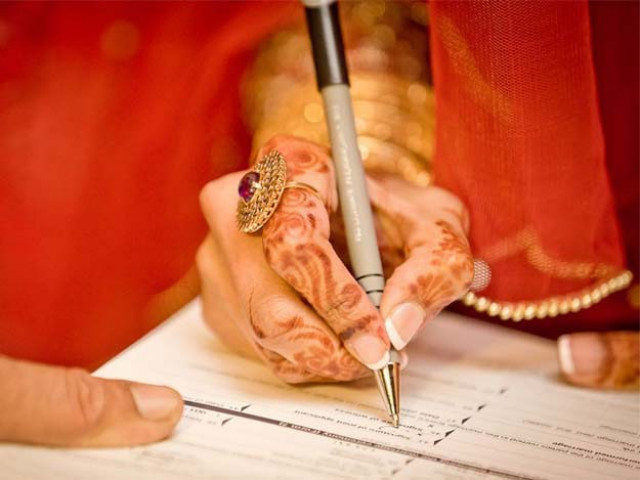Islamabad:
Islam grants each woman the right to accept or reject a marriage proposal without fear or coercion. The constitution of Pakistan strengthens this right under its guarantees of personal freedom and choice. However, across the country, the refusal of a woman is often not perceived as an autonomy, but a challenge – an insult perceived to which certain men react with cruelty, violence or even murder.
These opinions have been expressed by religious academics, activists and experts while condemning violence against women and non -Islamic.
On June 2, 2025, Sana Yousaf was killed twice in the chest by Umar Hayat, a man whose repeated proposals had refused.
In another recent case in Rawalpindi, Sidra Bibi, 18, would have been murdered on the orders of a local jirga after marrying a man of his choice.
Addressing App, Maulana Hafiz Muhammad Yasir Attari, a respected Islamic scholar, said: “According to Shariah, a woman has the right to accept or reject a marriage proposal.”
When asked how to ask for his permission, the prophet replied: “that she remains silent.” This hadith clearly establishes that the consent of a woman is essential. No goalkeeper (wali), a family member or tribal advice has the power to replace his will.
“Rejection is not a sin,” added Maulana Yasir. “It is not ingratitude or rebellion. Islam honors personal preferences and emotional compatibility. Saying” no “is its Islamic law – the meaning, protected and sacred.”
Condemning violence in the name of honor, he said: “Violence, killings of honor, combustion and suffocation are not Islamic, unjust and condemned. Forgiveness by the family does not legitimate the murder under Sharia law. The State must deal with acts such as murder and terrorism and prosecute them accordingly.”
In its July 2025 declaration, Pakistan Ulema Council said that “Islam strictly prohibits the killings of honor. A woman is very right to marry the man of her choice, and no violence or coercion is authorized”.
Dr. Sobia Khateeb, clinical psychologist and psychosexual therapist, underlined the emotional dynamic behind such violence.
“The violence focused on rejection reflects emotional immaturity and fragile masculinity. The boys are not learned to manage rejection; they assimilate virility to control,” she said.
She stressed that legal reforms alone are insufficient. “We have to raise boys with emotional intelligence and informed trauma care,” she urged.
Rabbiya A Turkman, journalist and editor -in -chief of Risona Today, underlined the media biases to cover sexist violence.
“When powerful people are involved, the consumer media is being silent. Gender-based violence is underestimated. Fortunately, social media intervenes to establish public pressures and preserve historical archives,” she noted.
Muhammad Sanaullah Khan, educator at Numl Islamabad University, underlined the transformative role of classrooms. “Educators must create safe spaces to discuss these questions. Thanks to gender equality, consent education and empathy, we can challenge deeply rooted stereotypes,” he said.
Bushra Iqbal Hussain, CEO of Mahfooz Bachpan, criticized the law enforcement agencies. “The police often assumed that the girl did something wrong. Threats, attacks on acid and an assassination of character follow. The girls live in fear-not only for themselves, but for their families,” she said.
Hina Mushtaq, student of Comsats Islamabad, thought about the generational struggle. “That we are talking about depends on our environment. The fear of judgment silenced many of us. But the campuses that promote equality help students raise their voices,” she said.
It is not only a legal crisis – it is cultural. These tragedies expose a toxic mixture of patriarchal rights, legal loopholes and silence of those in power. The laws mean little without application. Honor means nothing when it costs lives.




